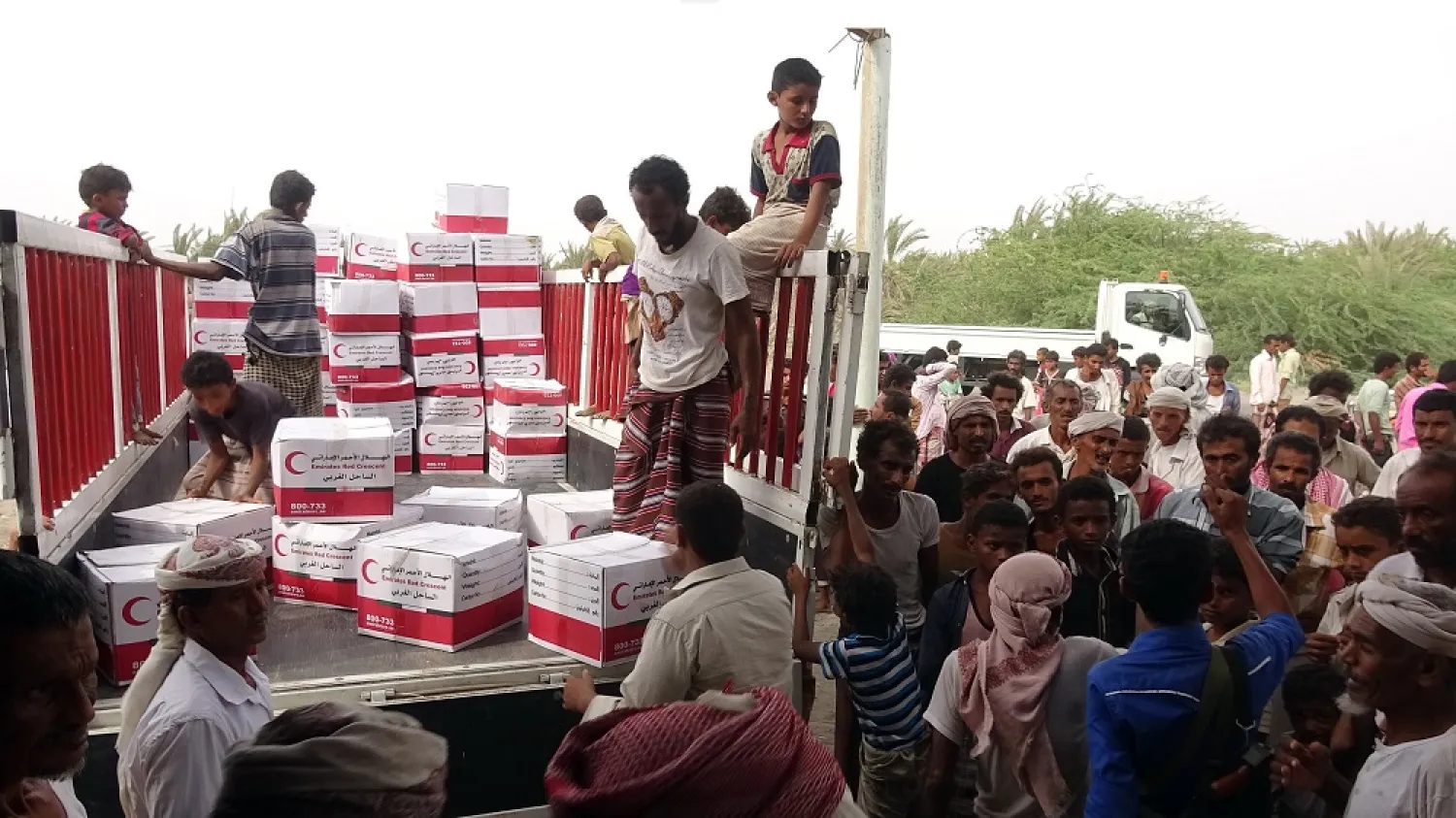The United States continues its diplomatic and political efforts to increase the humanitarian aid provided to Yemen and urge the conflicting parties to cease “hostile acts” and comprehensively participate in the UN-led political process for peace.
US Special Envoy to Yemen Tim Lenderking voiced the administration’s position during his visit to the Gulf region after the Security Council decided to renew for one year the arms embargo on the Houthis and classify the group as a terrorist militia, for the first time in the UN.
The Council “strongly condemned the cross-border attacks by the Houthi terrorist group, including attacks on Saudi Arabia and the United Arab Emirates that struck civilians and civilian infrastructure.”
The State Department said in a statement that Lenderking traveled to the Gulf to urge the parties to halt hostiles, participate fully in an inclusive UN-led peace process, and take swift action to mitigate the humanitarian crisis in Yemen.
The statement stressed that the US “remains committed to helping advance a durable resolution that ends the conflict, improves Yemeni lives, and creates the space for Yemenis to collectively determine their own future,” stressing that “justice and accountability” will be key to ensuring an enduring peace in Yemen.
It pointed out that one of the topics that the Envoy will discuss joint efforts with Gulf donors to better fund the humanitarian response for the people of Yemen this year, in preparation for the upcoming High-Level Pledging Event for Yemen co-hosted by the UN, Switzerland, and Sweden on March 16.
The United States urges donors to support the Yemeni people generously.
Washington is still calling for the need to work to end the conflict in Yemen and for the conflicting parties to return to the dialogue again after the war had created the largest humanitarian disaster in Yemen.
It is noteworthy that earlier during a Security Council session, the US Secretary of State Anthony Blinken expressed his “deep concern” with the uptick in civilian casualties in Yemen and the region, condemning the attacks by all parties that led to an escalation in Yemen and extended the conflict.
According to the State Department, Blinken stressed the “urgent need” for de-escalation and for all parties to abide by their obligations under international humanitarian law.
The Secretary communicated his support for the UN Special Envoy’s ongoing efforts to develop an inclusive political framework and reiterated that “justice and accountability will be key to securing an enduring peace in Yemen.”
He welcomed the collaboration to advance a durable resolution that ends the conflict in Yemen, improves Yemeni lives, and creates the space for Yemenis to collectively determine their own future, reiterating “that resolving the conflict in Yemen remains a top US foreign policy priority.”
In the latest US decisions last week, Washington sanctioned members of an international network funding the Houthis’ war against the Yemeni government and increasingly aggressive attacks threatening civilians and civilian infrastructure in neighboring states.
The sanctions on the network, which is run by Iran’s Revolutionary Guard Corps (IRGC), included three individuals and eight entities and companies, including a sea freight carrier.
The White House announced following the visit of National Security Council Coordinator Brett McGurk to Saudi Arabia last month that the US administration discussed the need to combine pressure on the Houthis in Yemen with a concerted UN-led effort to end the war and resolution 2216 for Yemen while continuing to call for an end to the conflict, and the delivery of aid to those in need in Yemen.









